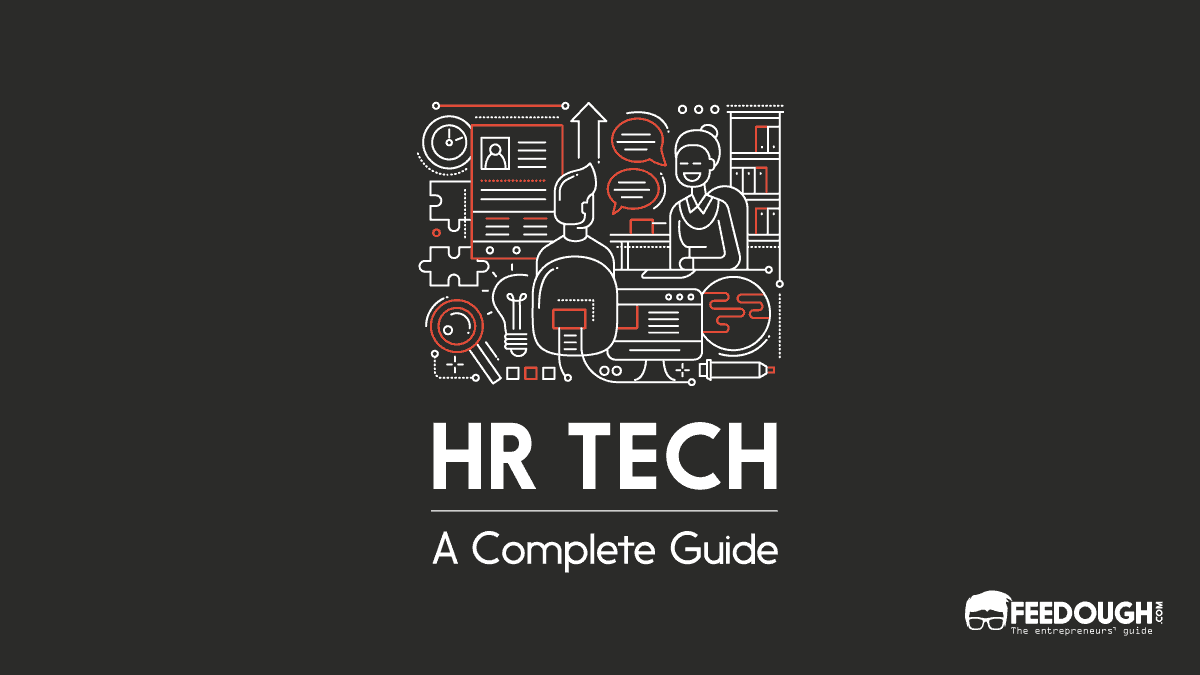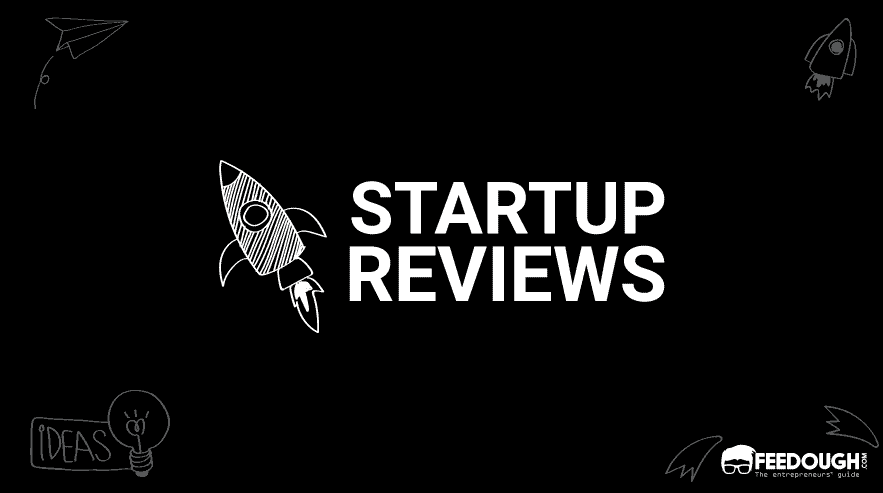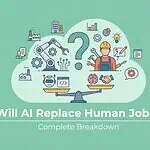The role of the human resource department in a company isn’t limited to hiring new employees. Its responsibilities range from employee recruitment and training to handling performance and relations, promotions, and administering employee benefits.
As the HR department continues to evolve to match the pace of the dynamic environment, organisations look to integrate technology in their HR operations to organise tasks and ensure smooth functioning.
This is where HR tech comes in.
What is HR Tech?
Human resource technology (HR Tech) refers to the use of software and hardware technology to complement, automate, and simplify HR operations and provide a better employee experience.
Since HR professionals are expected to cater to various demands, they face a lot of barriers. The HR tech eases the process of accomplishing tasks and boosts efficiency.
So what are the challenges that most of the professionals in the HR department face?
Human Resource Management Challenges
From finding the right person to the right job to making sure they are paid right, trained right, and are satisfied with the work environment, human resource managers have various HR challenges:
- Hiring: The biggest challenge for the human resource department is to find the right person for the right job within the given time frame. It involves sending attractive offers to prospects, interviewing and analysing them, and working together with the concerned team to find the best fit.
- Onboarding: Employee onboarding poses a challenge for the HR team as they have to ensure smooth onboarding of the new hire. Usually, onboarding takes weeks, if not months. It requires a lot of personal touch from the side of the HR manager to provide the employee with all the relevant information, job clarity, applications, and legal fulfilment.
- Employer Branding: Even the job market is crowded, and HR managers are tasked with developing an employer brand to attract better employees.
- Employee Training: Employee training and development is a never-ending process. But it becomes a challenge to manage hectic employee schedules, high costs, and different learning habits of the employees.
- Employee Turnover: Retaining employees and reducing employee turnover is a big challenge faced by the HR department. As new employee acquisition usually costs more than employee retention.
- Compensation management: Companies struggle with their policy of payroll and compensation. They have to factor in all the aspects of compensation – benefits, training, taxes and other miscellaneous expenses. The HR manager has to maintain a complete record of salary, benefits, bonuses, and attachments of earnings. As they have to cooperate with the accounts department, there are often problems arising regarding accurate and timely payments, posing a challenge.
- Performance management: Keeping a check on whether the employees are doing the assigned tasks well is a big challenge for the HR department. Moreover, designing strategies to increase employees efforts towards company goals and strategies to measure employee performance often requires a lot of effort from the human resource manager.
- Administration of employee benefits: Providing the right benefits to the employees according to their posts, legal requirements, and motivational requirements involves effort from HR managers’ side.
- Expense management: It is the HR manager’s administrative task to reimburse the expenses incurred by office workers and employees. These expenses include but are not limited to flights, car rental, lodging, meals, laundry and other types of employee-initiated expenses that the company agreed to pay for.
- HR Data Management: Managing and storing human-resource-related data is a big challenge for the human resource department that takes a lot of time and can be messy. Moreover, it can add to the challenge if it is done manually.
- Remote Workforce Management: The shift to virtual workplaces has added another task for human resource managers as they have to handle and manage the workforce without even meeting them physically.
All these tasks and challenges prove to be time-consuming, messy, and sometimes make the human resource manager put more effort into non-core tasks.
This is where HR tech comes to the rescue.
HR Tech Use Cases
The introduction of technology in HR management significantly contributes towards the fulfilment of personnel policies. It improves the data management and organisation, liberates managers from their administrative burden and provides tools to help in decision making.
Often considered as an HR copilot, HR tech uses digitisation, automation, and machine learning to assist the HR department in achieving ordinarily time-consuming tasks with eases.
Easy Data Management And Analysis
Technology has made it easier for HR managers to automate, store, sort, and find data relating to every aspect of human resource management. Today, specialised software has made it easier to organise and analyse data using cloud computing. Moreover, most of the monotonous work is no longer manual and is available for control on fingertips.
The HR modules and tools make it easier to analyse performance data online by grouping and filtering using different attributes assigned. This makes the process hassle-free and easily accessible.
Improved Employee Engagement And Performance Management
There are software programs that solicit and track employee feedback which gives employees direct contact with HR professionals. These programs list the data and group them to suggest actions to the management with respect to the feedback received. The management undertakes appropriate changes on this basis.
The HR tech also enables supervisors to check in on employees to be more aware of their performance and be more specific in their expectations.
Cost Reduction And Improved Efficiency
A significant amount of performance reports can be generated using HR tools. Very little time is spent on data entry and routine administration. This saves time and reduces costs by automating HR, benefits, attendance and payroll management.
Errors are reduced, and employee costs are cut down. This simplifies organisational tasks and avoids confusion by giving a central platform for all functions.
Not only managerial but employee time is also saved as they can submit requests and review performance easily.
Digital Learning, Training And Development
Organisations have started to provide online training programs for employees, which is less time consuming and is easy to keep track.
Businesses also require platforms where managers can keep a record of workflows, assign tasks, share files and resources and support the employees.
With the onset of the pandemic, everyone had to switch to online mode to keep their business going. They also provided training modules to help employees adjust to the work-from-home environment.
AI In Recruitment And Hiring Process
While recruitment is massively complex, HR tools use algorithms for more targeted and refined searches for potential candidates online by scanning resumes and user data.
Artificial-intelligence-based algorithms help to provide deeper insights into employee applications using social media activity. It can also analyse sentences and facial expressions apart from legible data.
This reduces hiring discrimination and also maintains diversity in the workforce.
Automated Processes
The implementation of technology frees the managers from routine work, eliminates paperwork and speeds up execution. Companies use machine learning to screen resumes and augmented reality to familiarise new employees.
Augmented analytics platforms combine AI capabilities to organise large sets of data and identify trends and track significant metrics. The tools then process and deliver the findings in a legible form.
Expense And Payroll Management
The payroll management portals save internal staff from manually filling spreadsheets. All the information is gathered and is used to generate a master report that calculates employees’ salaries and social security obligations.
Technology also assists in expense management by generating reports of funds transfer, payslips, cost reports and expenses incurred by each employee.
Companies using HR tech
With the increased popularity, several HR tech startups are coming up which build products using AI, machine learning and data analytics to help companies enhance their business outcomes and project analysis based on user data.
- BambooHR: It is an all in one HR software made for small and medium businesses. They have a cloud system that allows applicant tracking (ATS), onboarding tools and performance management tools. Reporting and analysis of performance are made easier along with a mobile app for employees.
- Paylocity: It is a cloud-based human capital management platform for businesses of any size to manage internal and core HR functions. These include payroll processing, benefits administration, time management, talent management, employee engagement and ATS.
- Upwork: It is a platform for organisations and professionals to find projects, communicate with clients and hire qualified candidates. It allows the user to post the job profile and wait for proposals. Their advanced algorithms help shortlist candidates who are the best fit.
- ADP: It offers small business tools which cater to HR needs like payroll, taxes, recruitment and training. For mid-sized businesses, it helps with administration, compliance and recruiting. For large businesses, it helps in handling talent management needs and strategic objectives.
Future Of HR Tech
The future of human resource management requires the managers to handle a mixture of both virtual and traditional teams. This will eventually increase the demand for technology aiding human resource management.
Moreover, while the workforce getting more global and the work culture getting more flexible helps the organisation overall, it increases the human resource department’s work. This has increased the global demand for HR tech startups.
Go On, Tell Us What You Think!
Did we miss something? Come on! Tell us what you think about our article on Human Resource Technology in the comments section.
A startup enthusiast, optimist and full time learner. With keen interest in finance and management, Khushi believes communication to be the key to every management. Always ready to explore more and walking that extra mile in putting efforts.













